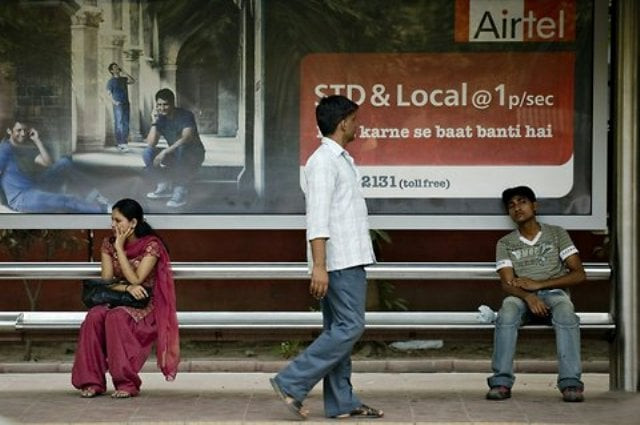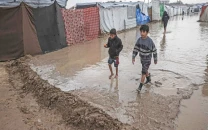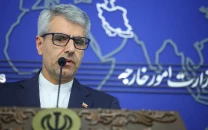India’s women commuters face daily sexual harassment
The long wait for bus comes with the dreaded prospect of being groped by strangers during the ride.

A bus stop in New Delhi. PHOTO: AFP
"Once a guy sees you travelling alone, he will come and stand right behind you. Then, he will lean in and press his body against yours and try to touch you," Misarvan said, describing an ordeal endured daily by many women in urban India.
In Delhi's crowded coaches, where men easily outnumber women, the sense of hostility and fear is particularly palpable in the wake of the widely-discussed gang-rape and murder of a young student on a moving bus in the city last month.
"It's terrifying," Misarvan told AFP. "Sometimes I just lose it and ask the guy to stand properly but then he just yells at you, telling you to shut up.
"It's upsetting, but what more can I do? If the guy gets even more aggressive or violent, no one on that bus is going to help me... so I just put up with it and wait for my bus stop," she said.
Once 34-year-old Misarvan steps off the bus, she hunts for an auto-rickshaw, three-wheeled vehicles which are cheaper than taxis, since it's too dark and unsafe to make the 35-minute walk alone to her house.
On most evenings it takes her 90 minutes to arrive home from work.
India's expanding economy has seen unprecedented numbers of women join the workforce, but their emergence has been accompanied by growing threats to their security.
Like many working women, Poonam, a 21-year-old barista at an upmarket coffee shop in the capital, often stays late serving customers and says her parents fret nonstop about her comings and goings, calling her every night.
"I try to get an auto-rickshaw (home) because it's safer but the drivers haggle for double pay and I can't always afford it. So I end up waiting late at night for the bus, which never arrives on time," she told AFP.
Once on board, Poonam, who declined to give her surname, says that sexual harassment is a constant risk.
"There's nothing you can do about it, if you tell your family, chances are they will just tell you to stay home," she said.
India's Prime Minister Manmohan Singh has said that economic progress is impossible without the "active participation" of women, but there are signs that the Delhi gang-rape case has led some to turn their backs on the workplace.
A survey by industry group ASSOCHAM published this month showed a 40 per cent fall in the productivity of female employees at call centres and IT firms in the country because many had reduced their hours or had quit their jobs.
Insensitive comments from politicians implying women are to blame for sexual assaults and clumsy "safety tips" from police have only fuelled anger among commuters.
A Delhi Police advisory posted on its official website suggests that women should "turn off" prospective attackers by vomiting or "acting crazy".
Just days after the December 16 gang-rape, KP Raghuvanshi, a senior police officer in Mumbai told female college students to carry a packet of chilli powder with them always and use it when threatened, the Press Trust of India reported.
While trains in Mumbai and Delhi run segregated women-only coaches in response to the high incidence of sexual harassment, many have now called for more vigilance by authorities and frequent police checks.
Police and prosecutors have outlined how the student and her male companion struggled to find transport to go home and so agreed to climb aboard the bus driven by the rapists.
The group allegedly beat up the man and repeatedly raped and assaulted the victim with a rusting metal bar in the back of the bus while driving around Delhi for some 45 minutes. Five adults were due to go on trial on Monday on charges of rape and murder in connection with the attack.
Since the attack, beautician Misarvan, who often boarded similar privately-run buses to visit her widowed mother in west Delhi, says she is too afraid to keep doing so and now spends more to take an auto-rickshaw instead.
Like her other female colleagues, she tries to leave work as early as possible and expresses no faith in the Indian police's ability to protect her.
"Nowhere in this country is safe," says the mother of two, the first woman in her family to have a job.
"I worry a lot about my daughter growing up here, whether she will have to endure the same problems, the same risks that I deal with every time I leave my house," she added.



















COMMENTS
Comments are moderated and generally will be posted if they are on-topic and not abusive.
For more information, please see our Comments FAQ